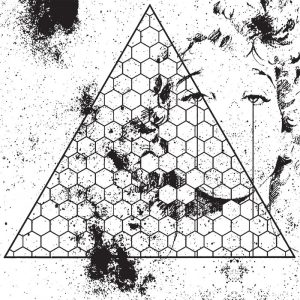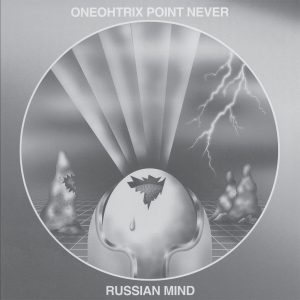0. Who is Daniel Lopatin? The composer of the soundtrack of what became everyone’s favorite Adam Sandler movie: Uncut Gems; a born-and-raised Masshole, like me(!); the director of The Weeknd’s 2021 Super Bowl halftime show; a wizard with a Roland Juno-60 synthesizer; an all-around great guy.
1. Betrayed In The Octagon. Rifts evokes a narrative more than it could ever hope to present one. This is characteristic of any piece of music that’s almost entirely wordless. Musically speaking, however, it’s clearly indebted to the ambiance of soundtracks to SF films like Bladerunner, the synth work of new-age music of the 60s and 70s, and the experimental noise scene of New York City. That these influences range from music that was almost purely commercial to sounds that most people (myself included) have a hard time calling “music” is characteristic of the project as a whole, regardless of whether the influences in question are musical or literary.
2. Zones Without People. The titles of the songs on Rifts are full of references to technology (“Laser to Laser,” “Disconnecting Entirely,” “Computer Vision,”), the uncertain nature of time (“Months,” “Time Decanted,” “ Immanence”), and bastardized locations (“Terminator Lake,” “Behind The Bank,” “Melancholy Descriptions Of Simple 3D Environments”). Electronic music is already associated with notions of the future, technology, and the unreal. Add the fact that the album is already influenced by works of past science fiction, and there you have it: my yet-unshared theory that this album is about a(n) astronaut(s) traveling through/lost in space/time is clearly a great one. I win.
3. Russian Mind. I would also argue that this album is influenced by works of new wave SF and hard SF in the same way it’s influenced by new-age and noise. Starting with the former, we can see that Lopatin is interested in the mind and the surreal. Songs like “Grief and Repetition” and “Blue Drive” are as wandering and hypnotic as their titles suggest. It might not come as a surprise, then, that the only two countries referenced on the tracklist are the United States (“When I Get Back From New York”) and Russia (“KGB Nights”). Lopatin is the child of Russian-Jewish immigrants, and this is music inspired by the sounds and mindset of the 80s: it is, at times, very anxious and very lonely.
4. Drawn And Quartered. Elements of hard sf are present as well. A title like “Lovergirls Precinct” feels like it could be ripped out of a pulp magazine, while one takes it a step further and references a real person: philosopher Emil Ciroan. Then there are songs like “Transmat Memories, “ “Sand Partina,” and “Hyperdawn,” which feel concerned with exploring the very specific discoveries of unnamed scientists and the brand new experiences of long-lost astronauts.
5. The Fall Into Time. Are our characters alone? “Learning to Control Myself” implies yes, while “A Pact Between Strangers” suggests otherwise. Are they lost in a Zone Without People or have they been Betrayed In The Octagon? My favorite song on this album answers none of these questions and poses at least three of its own: “I Know It’s Taking Pictures From Another Plane (Inside Your Sun).” If you’re not into electronic music, give this a shot. When I listen to it, I imagine the universe’s loneliest man sitting alone with his guitar at an abandoned bar on the moon of some unexplored planet. The contrast between the horror of the Lovecraftian title and the humanity of Lopatin’s voice is both grounding and disorienting, but altogether beautiful in its own way.
00. What is Rifts? One of the only albums I can comfortably call musical science fiction, and one of my favorite electronic albums of all time; the soundtrack to the greatest space epic never made; best heard when you’re on the edge of sleep in a dark room. Preferably alone.







I love the album art here! Looks both “retro” and space age. The names of all of these songs tell a great story as well. Another science fiction album I love (of a very different genre), is The Incredible True Story by Logic, which describes future space travel in both a hard and soft SF way. I can’t wait to listen to more of this music too!
I will check out Logic, too! Don’t know it.
Alan— this is a fascinating post. Not just _Rifts_ itself, but the Ballardian way you set up your contemplation of their sound/concept/methods/messages. If you’d like, we could talk about how this way of “reading sf” in sound could turn into a final project for the course. Let me know.